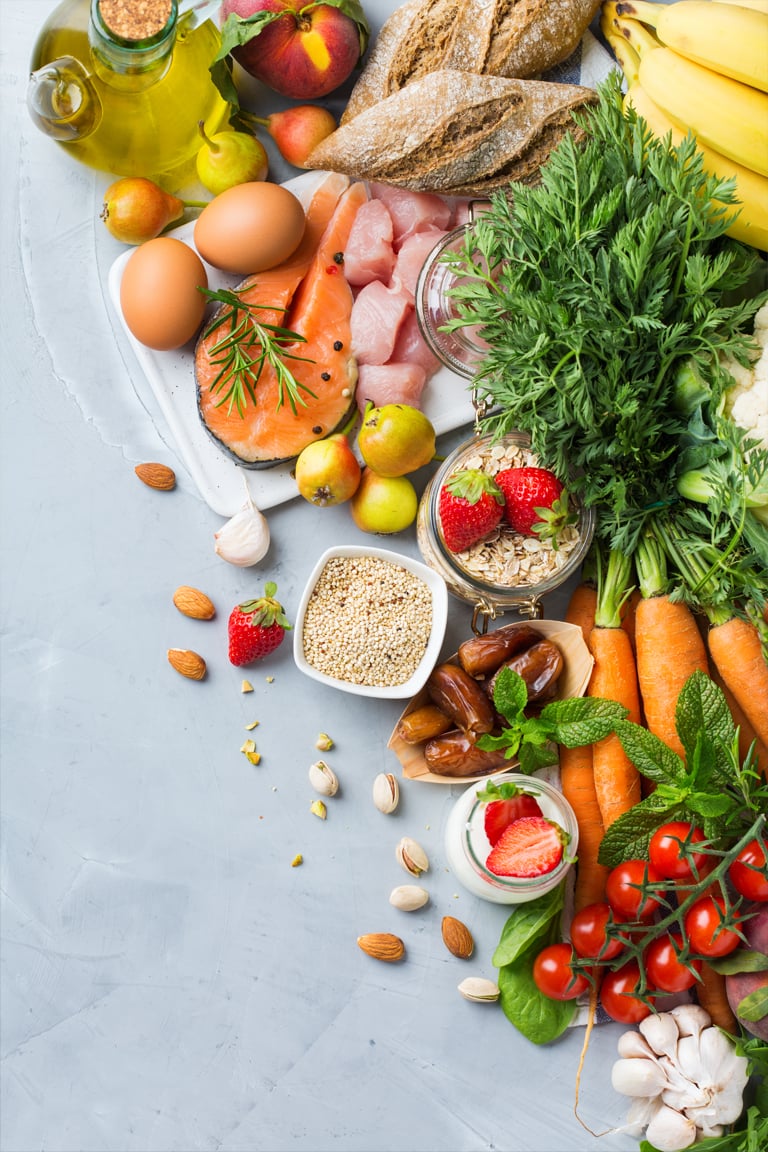Eating our way towards Net Zero, a healthy and sustainable diet can be achieved without having to go completely vegetarian or vegan.

The food we put on our plates, and the way it is currently produced, is not only a significant contributor to climate change but is also driving nature loss, increasing pollution, and depleting the soil. Intensive farming of animals to produce meat, fish, and dairy is particularly damaging to the environment, hence the need to shift our diets towards more plant-based protein sources.
With a growing world population, we face the challenge of being able to feed everyone without putting additional strains on the planet. The increase in diet-related diseases also suggests that our current Western diet is not only detrimental to the planet but also to our health.
World Wildlife Fund’s (WWF) new Eating for Net Zero report aims to demonstrate that we can have a healthy and sustainable diet without needing to go completely vegetarian or vegan. Instead of a drastic overhaul of what we eat, WWF argues that everyone can adopt the more planet-friendly Livewell diet simply by making small adjustments to the current average UK diet.

Livewell is a flexible diet that adds environmental constraints to the current UK Eatwell Plate dietary guidelines. It is designed to rebalance our protein consumption towards plants, by recommending more plant-protein rich wholesome foods, and fewer foods high in fat, salt and sugar.
Nutritionally balanced and easily achievable for most people, Livewell involves just a few simple dietary changes. Most importantly, at a time of financial pressure, it can be followed without costing more.
Shockingly, less than 1% of the UK population is currently meeting all of the UK Eatwell Plate dietary guidelines and consequently the NHS spends £6 billion on diet-related illness each year. More people adhering to a healthy and sustainable diet would be a win-win situation for both our health and the health of the planet.
Here are some of Livewell’s recommendations:

When it comes to eating meat, fish, and dairy, WWF is advocating a “less and better” approach, prioritising animals raised sustainably to higher welfare standards. The easiest way to achieve this is to make sure that the meat you are buying carries a welfare label from a trusted organisation such as The Soil Association or the RSPCA. I often refer to Compassion in World Farming’s “Know Your Labels” guide when I am unsure of what I am buying.
“Adopting Livewell recommendations could deliver a 36% reduction in emissions and a 20% reduction in biodiversity loss compared to the current average diet, while also enabling the shift to net-zero and nature-positive farming and food production.”
Eating towards Net Zero: where to get your protein from?

Design: Clean Canvas Studio
If you are just starting on your less meat journey, or wanting to fine-tune your flexitarian diet, Livewell’s guidelines are well worth considering.
While meat, fish, eggs, and dairy are present in small quantities, Livewell recommends that we should be getting the bulk of our protein needs from wholesome plant-based food.
Alongside fresh fruits and vegetables, protein-rich plants (pulses, legumes, wholegrains, nuts and seeds) make up the bulk of the diet. These are complemented with minimally processed plant-based proteins such as tofu, tempeh, or seitan with the occasional addition of a meat or fish analogue.

It is important to remember that many plant-rich foods do not have a complete amino acid profile on their own. It is best to combine them as part of a balanced diet with other foods (such as wholegrain rice and beans or peanut butter on wholemeal bread).
As we move towards more sustainable diets, meat, fish, and dairy analogues play a vital role in reducing our dependence on animal-based proteins. I found it interesting that the Livewell diet involves only “a slight increase in consumption of meat alternatives compared to current levels.” This is because some analogues are seen as ultra-processed so while they play a vital “role in helping to reduce the consumption of meat and dairy products with high environmental impact”, they might not necessarily have the best nutritional profile.
WWF emphasises that many dairy alternatives might not be a nutritional match to milk especially if they are not fortified with micronutrients such as calcium, iodine, vitamin B12 and vitamin D. So, while Livewell recommends that our dairy intake is reduced by 25% to levels in line with current health guidelines, the focus should mainly be on reducing cheese consumption by 67%, as many cheeses are high in saturated fats and salt.
![Cauliflower and Aubergine Curry [vegan] [gluten free] by The Flexitarian © Annabelle Randles](https://theflexitarian.co.uk/wp-content/uploads/2019/07/Cauliflower-and-Aubergine-Curry-vegan-gluten-free-by-The-Flexitarian-%C2%A9-Annabelle-Randles-v8.jpg)
Living a healthy life on a healthy planet starts with the food we put on our plates. This is something that should be accessible to everyone. Affordability is key, especially with the pressures of the current cost of living crisis.
The Livewell diet demonstrates that eating our way to Net Zero is easier than we think. By making small, sustainable changes to our diet within our budgets, we can be healthier and safeguard the health of the planet for future generations.
About WWF:
WWF is an independent conservation organisation, with over 30 million followers
and a global network active in nearly 100 countries. Its mission is to stop the
degradation of the planet’s natural environment and to build a future in which
people live in harmony with nature, by conserving the World’s biological diversity,
ensuring that the use of renewable natural resources is sustainable and promoting
the reduction of pollution and wasteful consumption.
Find out more at wwf.org.uk
Authors of Eating for Net Zero : Sarah Halevy and Joanna Trewern, WWF-UK.





Leave a Reply